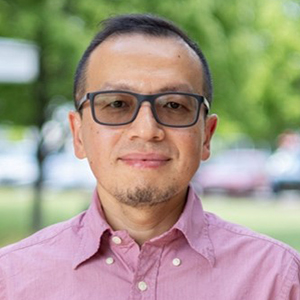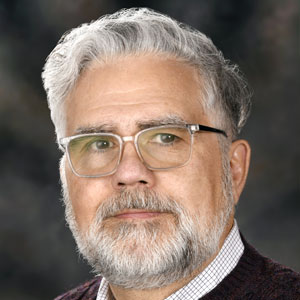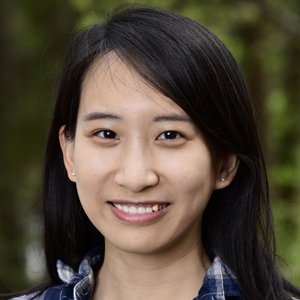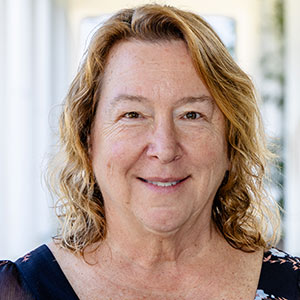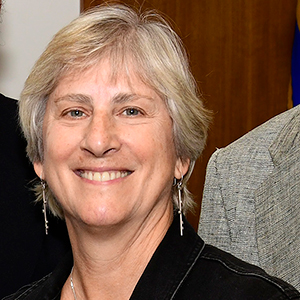Adriana Alexander, Ph.D., a postdoctoral fellow in the NIEHS Reproductive Developmental Biology Group, received a $5,000 award to help offset family care expenses and attend the Society for the Study of Reproduction (SSR) conference. She is one of five recipients of the inaugural Career Advancement and Research Excellence Support (CARES) Award, given by the Federation of American Societies for Experimental Biology (FASEB).
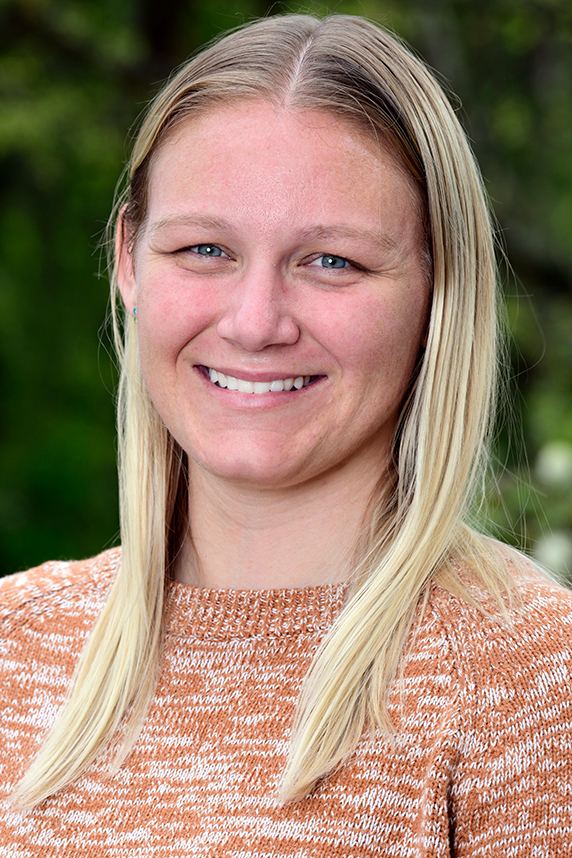 Adriana Alexander, Ph.D., is a postdoctoral fellow in the Reproductive Developmental Biology Group. She is a recipient of the inaugural FASEB CARES Award. (Photo courtesy of Steve McCaw / NIEHS)
Adriana Alexander, Ph.D., is a postdoctoral fellow in the Reproductive Developmental Biology Group. She is a recipient of the inaugural FASEB CARES Award. (Photo courtesy of Steve McCaw / NIEHS)The CARES Award was established to provide financial support to historically excluded groups of scientists to alleviate financial burdens associated with caregiving while continuing scientific training, professional development, and career progression.
Humphrey Yao, Ph.D., Alexander’s mentor, encouraged Alexander to apply for the award after he heard about it through his service position on the SSR board of directors. SSR is one of FASEB’s 28 member societies.
Alexander’s childcare situation is a prime example of why scientists who are caregivers need support to offset the financial burdens associated with caregiving. While Alexander was in graduate school at Cornell University, her husband, Gabriel’s father, died from sinonasal carcinoma. With no family members in North Carolina, where she is completing her postdoctoral fellowship at the NIEHS campus, her mother in New York is the nearest childcare alternative.
Environmental Factor sat down with Alexander to learn more about her CARES Award, her research interests, and her journey to NIEHS.
EF: Can you tell us more about your CARES Award and why you applied?
Alexander: I received an award for my abstract that I submitted to the SSR conference. I wanted to attend but to make this happen I had to fly with my nine-year-old son, Gabriel, to New York so that my mother and her partner could care for him. I had to fly roundtrip to New York and back to Raleigh, then to the conference in Spokane, Washington. After the conference, I had to return to Raleigh, before another roundtrip flight to New York to get Gabriel. It was a lot of traveling and all the costs of the tickets for both of us back and forth to New York came out of my pocket.
EF: Congratulations on your recent research abstract award, too. Can you tell us a little bit about your award-winning work and how you became interested in studying reproductive biology?
Alexander: When I was 10, my mother had a child born with Down syndrome. It threw our family for a loop, and we experienced a lot of turmoil during that time. As all of this was happening, my mom tried to explain to me why and how these things happen, when she had no biology background at all. I was trying to understand topics like trisomy, how cells divide, and what causes birth defects. That early introduction to science is what led me to study biology. I knew early on that I wanted to be a developmental reproductive biologist.
The abstract I submitted to SSR was based on my current postdoctoral research in Dr. Yao’s lab, titled “Sex-Specific Regulatory Networks Prime Primordial Germ Cell Fate Commitment.” The aim of my research is to improve our understanding of germ cell development. In particular, this research focuses on the extrinsic and intrinsic signals that influence sexual fate determination of the embryonic germline.
Germ cells that fail to adopt a sex-specific fate (e.g., to become egg or sperm) during embryonic development can lead to poor gamete quality or even the formation of malignant germ cell tumors in adulthood. We are applying next generation sequencing technologies and computational biology to identify the totality of factors involved in germ cell sex determination.
It is my goal to identify novel, candidate genes involved in regulating germ cell fate to better understand the developmental origins of reproductive diseases.
EF: What led you to studying reproductive biology at NIEHS?
Alexander: I had my sights set on working in Dr. Yao’s lab since I was at Southern Oregon University majoring in cellular and molecular biology. I found his research in 2015 when I was accepted into the Undergraduate Scholarship Program at the National Institutes of Health (NIH). I hoped to do my summer internship in his lab, but the program would not let any students come out to North Carolina because they wanted us all on the main campus in Bethesda, Maryland. But I had always remembered Dr. Yao and the fascinating work done by his lab.
I was incredibly fortunate a few years later because Dr. Yao came to give a talk at Cornell, and my doctoral advisor was hosting him. I said to her, ‘I know I am not graduating for three more years but can I schedule a meeting with him,’ and she was very supportive. He sat down with me, and it was a great conversation. He asked me questions about my research and shared the exciting new directions of his lab. A few years later when I was making graduation plans, he was the first principal investigator that I e-mailed.
I am still really fascinated by germ cell development and differentiation, and I felt like Dr. Yao’s lab was the perfect fit.
EF: Your postdoctoral fellowship will last three to five years. Now that you are skilled at molecular, cellular, and developmental biology; genomics; and bioinformatics, what do you envision for your future once this chapter concludes?
Alexander: Something that has really caught my eye are the NIH program officer positions. Being in a position where you are still very involved with the science but looking at it from a different perspective, supporting extramural grants, and helping scientists to best state their case in their funding applications; I just think that is all very central to advancing science.
(Jennifer Harker, Ph.D., is a technical writer-editor in the NIEHS Office of Communications and Public Liaison.)





